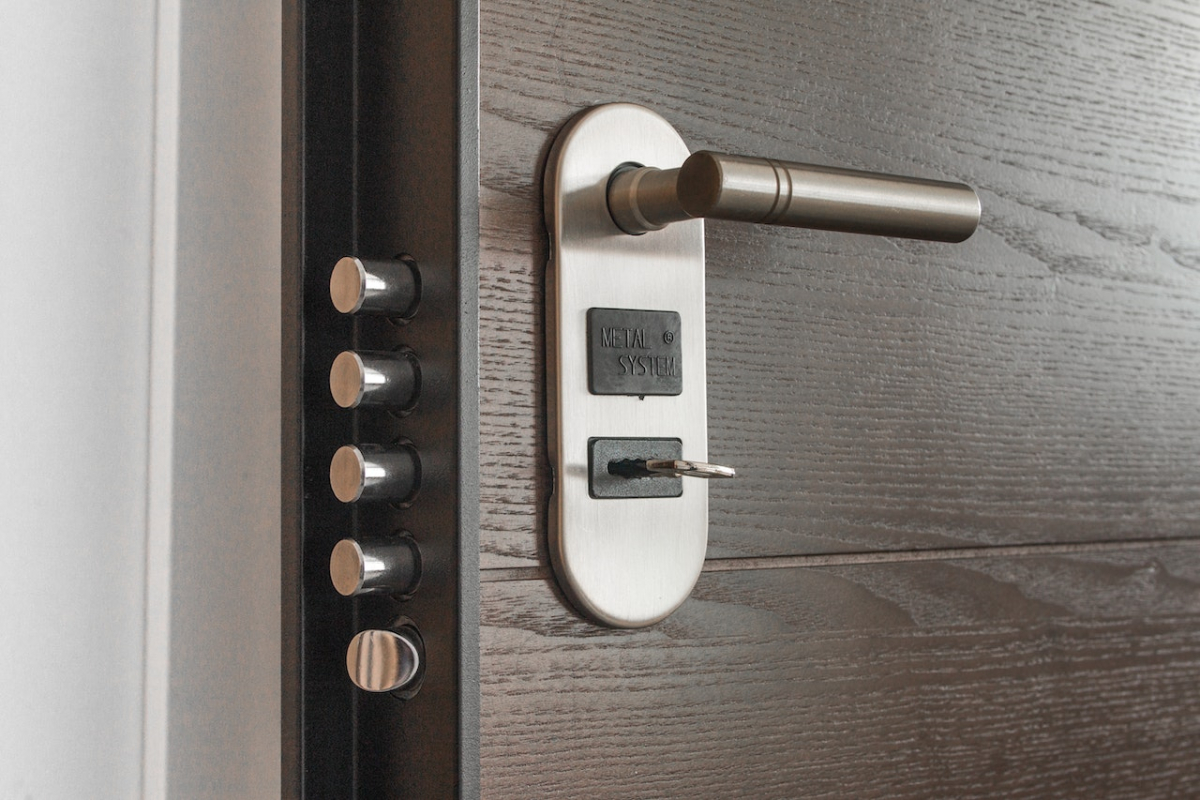Home security has always been a top priority for homeowners, and with the emergence of new technologies, it has become easier than ever to keep our homes safe. In recent years, advancements in smart home technology, biometrics, and artificial intelligence, have revolutionized the home security industry. With so many new and innovative technologies available, it can be challenging to keep up with the latest developments and determine which solutions are best suited for your home. In this article, we will explore the future of home security and highlight some of the most promising emerging technologies that can help keep your home safe and secure.
Smart Home Security Systems
Smart home security systems are advanced, technology-driven solutions designed to enhance the safety and protection of residential properties. These systems employ a combination of devices and software applications, which work together to provide a comprehensive and integrated approach to home security. By utilizing a range of connected devices such as cameras, sensors, and alarms, smart home security systems are able to detect potential threats, notify homeowners of any suspicious activity, and in some cases, even take proactive measures to prevent unauthorized access.
One of the key benefits of smart home security systems is their ability to offer remote monitoring and control. Homeowners can conveniently access their security system through a smartphone, tablet, or computer, allowing them to monitor their property in real-time, no matter their location. This provides a heightened sense of security and peace of mind, as individuals can quickly respond to any alerts, communicate with emergency services if necessary, and even control various aspects of their security system such as arming or disarming alarms.
Moreover, smart home security systems can seamlessly integrate with other smart devices, creating a cohesive and connected ecosystem within the home. This interconnectedness allows for greater customization and automation of various tasks, such as setting specific routines that automatically activate or deactivate security features based on the homeowner's schedule or preferences. Additionally, integration with smart home assistants, such as Google Home or Amazon Alexa, enables voice-activated control of the security system for added convenience.
There are numerous popular smart home security systems currently available on the market, catering to various needs and budgets. Examples of these systems include Nest Secure, which offers a range of devices such as cameras, door sensors, and keyless entry; Ring Alarm, which provides an easy-to-install and affordable solution with features like motion detection, smart locks, and video doorbells; and SimpliSafe, a comprehensive security system that offers professional monitoring, environmental sensors, and integration with various smart devices. Each of these systems demonstrates the potential and flexibility of smart home security, providing homeowners with a myriad of options to enhance the safety and efficiency of their living spaces.
Biometric Security
Biometric security refers to the use of unique, measurable physical or behavioral characteristics to verify an individual's identity for the purpose of granting access to a secured area or system. This cutting-edge approach to home security has the potential to revolutionize the way we protect our homes and loved ones by utilizing an individual's unique biological traits, such as fingerprints, facial recognition, and iris scanning, to authenticate their identity. As technology advances, biometric security systems are becoming increasingly sophisticated, rendering them a viable and effective alternative to traditional security methods like passwords and keys.
One of the primary advantages of biometric security over conventional methods is the increased level of security it offers. Passwords and keys can be easily lost, stolen, or duplicated, leaving homes vulnerable to unauthorized access. However, biometric identifiers are inherently unique to each individual and cannot be replicated, making it far more difficult for intruders to gain entry. Moreover, biometric security systems are generally more convenient for homeowners, as they eliminate the need to remember and manage multiple passwords or carry around physical keys.
Another advantage of biometric security is its adaptability and scalability. As technology advances, biometric systems can be improved and updated to increase their accuracy and reliability, whereas traditional security methods may become outdated and less effective over time. Furthermore, biometric security can be easily integrated with other smart home technologies, providing a seamless and interconnected security solution for homeowners.
Several biometric security technologies are currently in development, showcasing the future potential of this field. For instance, researchers are working on improving facial recognition algorithms to account for factors such as aging, weight changes, and varying lighting conditions to ensure consistent accuracy. Additionally, advancements in iris scanning technology are being made to enable contactless and non-invasive methods for high-level security applications. Another innovation in the biometric security landscape is the development of vein-pattern recognition, which leverages the unique arrangement of an individual's blood vessels to authenticate their identity.
In conclusion, biometric security presents a promising and innovative approach to home security, offering numerous advantages over traditional methods such as passwords and keys. With ongoing advancements in technology and the development of new biometric security solutions, we can expect to see an increased adoption of these systems in the near future, ultimately leading to a safer and more secure environment for homeowners.
Artificial Intelligence and Machine Learning
Artificial intelligence (AI) and machine learning (ML) are revolutionizing various industries, including the realm of home security. These advanced technologies offer promising solutions to enhance the safety of residential spaces, providing homeowners with a more secure and reliable means of protection. By utilizing AI and ML, home security systems can effectively detect, analyze, and respond to potential threats in real-time, ensuring the well-being of families and their assets.
One of the most significant benefits of using AI and ML in home security is their ability to provide better threat detection. Traditional security systems often rely on basic sensors and alarms that can be easily triggered by false positives, such as pets or weather conditions. However, AI-powered systems can distinguish between actual threats and benign movements, reducing the likelihood of false alarms. For instance, advanced security cameras equipped with AI algorithms can analyze and identify unusual activities, such as an intruder attempting to gain entry or a package being stolen from the doorstep. These systems can then promptly notify homeowners, allowing them to take immediate action.
Another key advantage of incorporating AI and ML technologies into home security is the enhanced response capabilities. AI-driven systems can quickly analyze and determine the best course of action to address a detected threat, such as automatically contacting the authorities or activating security countermeasures like floodlights or sirens. Moreover, AI and ML can learn from previous incidents, adjusting their response methods accordingly to ensure a more effective approach in the future.
Several AI and ML technologies are currently being utilized in home security to improve overall safety and reliability. For example, facial recognition systems leverage AI algorithms to distinguish between authorized individuals and potential intruders. Similarly, voice recognition technology can be used to verify the identity of individuals attempting to access a secured area. Additionally, ML-driven smart locks can analyze usage patterns and detect anomalies, such as an unusual time of entry, which may indicate unauthorized access.
In conclusion, the integration of artificial intelligence and machine learning in home security systems offers significant benefits, including improved threat detection and response capabilities. By harnessing the power of these advanced technologies, homeowners can ensure a safer and more secure living environment for themselves and their families. With continued advancements in AI and ML, we can expect even more sophisticated and reliable home security solutions in the coming years.
In Summary
As we have seen, emerging technologies have the potential to revolutionize the way we think about home security. From smart home security systems to biometric authentication and AI-powered threat detection, there are a plethora of innovative solutions available to homeowners today. By adopting these new technologies, we can stay one step ahead of potential threats and enjoy greater peace of mind when it comes to our homes and families. As technology continues to advance, we can expect even more exciting developments in the field of home security, making it easier than ever to protect what matters most. Ultimately, by staying informed and taking advantage of the latest technologies, we can ensure that our homes remain safe and secure for years to come.

